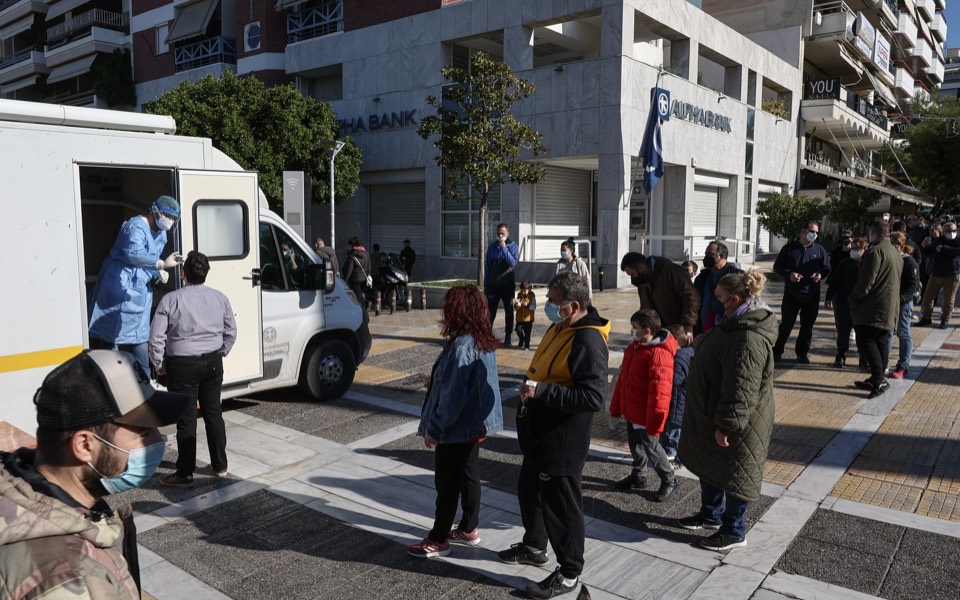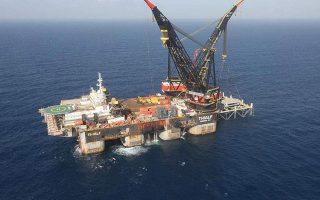The last mile and other over-optimistic proclamations

For the uninitiated, a mile is a unit measuring distance and is equal to 1,609 meters. It is used in Britain and a few other countries instead of the kilometer and must not be confused with a nautical mile, which is equal to 1,852 meters.
The “last mile” became something of a catchphrase in Greece in February 2021, when it was uttered by Prime Minister Kyriakos Mitsotakis to convey his optimistic certainty that we were on the “last mile to being free from the pandemic.”
I don’t know from where the prime minister borrowed the term – why a mile and not a kilometer – but I would not be surprised if the prime minister was picturing a marathon. For British runners competing in a marathon, the “last mile” suggests that a long and exhausting race (a marathon has a total length of 42,195 meters or 26.2 miles) is nearing its end. Your feet may be aching, you may feel like you cannot push any more, but for the last mile you grit your teeth, you lift your head up high, and you can see the finishing line.
Boston is home to the oldest, and perhaps best-known, marathon in the world, having been organized annually since 1897. It is particularly popular with students from the city’s universities, who eagerly await it and enthusiastically participate in their thousands every year.
Of course, when runners talk of the last mile, they really mean a mile. They are not talking about wishful thinking. Even an amateur runner knows that would be a disaster. If you’re halfway through a race, you don’t turn to the person running next to you and tell them, “Patience, we are on the last mile.” If you do, and if they believes you, when a mile or two come and go and the finishing line is nowhere in sight, their morale and endurance will be severely tested.
Every serious marathon runner wants to be in complete control of the distance, the pace, and their body’s endurance. Control means being aware of the truth, primarily to protect their health but also their performance.
Anyone who has run a race knows that good runners are conservative at the beginning, saving their energy for the last part of the race. Good runners are not over-optimistic nor are they careless, by not taking precautions when fatigue starts to set in. Good runners are composed, because they are aware that there can be unforeseen circumstances during a marathon for which they have to be prepared both physically and mentally.
It has been almost a year since the prime minister’s statement and, unfortunately, we are still running. It must be the longest last mile in the history of humanity. We are exhausted, depleted of energy, suffering from cramps, frustrated, and uneasy on a route that to us constantly seems to be going uphill. At every turn we think it is almost over, only to disappointedly realize there is still more.
What about our performance? Over the last year we recorded one of the worst Covid-related mortality rates in Europe. We are like the runner who began the race very strongly, but about halfway through ran out of energy and is now lagging. Based on today’s performance, the only thing we would stand a chance of winning would be a Balkan race.
Finally, the “last mile” will live on as a misplaced statement of optimism. It might not be on the same level as “the Greek economy is protected” of former finance minister Giorgos Alogoskoufis or George Papandreou’s “there is plenty of money.” However, if any future writers sit down to compile a list of hyper-optimistic statements, this one will be included.
I confess that I find it difficult to understand today’s leadership style, which dictates that leaders must constantly put on a show of being confident and optimistic. Maybe it’s because I’m getting old or maybe it’s politicians taking the public relations industry too seriously, trying to sell optimism and joy to citizens like they are children at Disneyland. I understand that even in politics, as in retail, the voter-consumer must be satisfied, but have we taken it too far?
Many find the comparison with Winston Churchill flattering, but how many of them would have the courage to stand up and say, “I have nothing to offer but blood, toil, tears and sweat,” like he did when addressing the British Parliament in 1940?
Nikos Marantzidis is professor of political science at the University of Macedonia.





